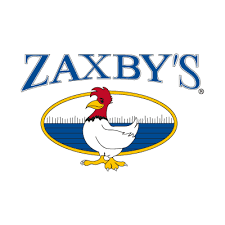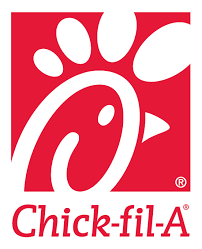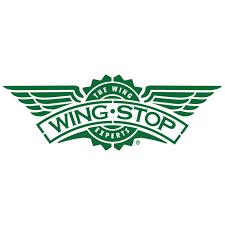Zaxby’s Franchise in 2025: Costs, Fee & FDD
Explore the investment potential of a Zaxby’s franchise, a fast-casual chicken brand with over 900 locations across the U.S. Discover franchise costs, earnings insights, and the comprehensive support system that drives success.
Table of Contents:
Zaxby’s, founded in 1990 by childhood friends Zach McLeroy and Tony Townley in Statesboro, Georgia, is a fast-casual chain that dared to reimagine how we enjoy chicken. Instead of treating chicken fingers as just appetizers, they made them the star of the show, creating a bold concept that quickly took off. What started as a single restaurant in a small town has blossomed into a beloved brand with a loyal following, known for delivering not just food but an experience that connects with communities.
At the core of Zaxby’s menu are their signature chicken fingers and wings, which have become legendary among fans. Their offerings extend beyond chicken, with a menu that includes salads, sandwiches, and Zax Sauce, their unique dipping sauce that customers rave about. Zaxby’s appeals to a broad market, particularly families and young adults, who crave high-quality, flavorful comfort food served quickly and with a personal touch.
As of today, Zaxby’s has expanded its footprint to over 900 locations across the United States. This impressive growth highlights the brand’s appeal and strong business model. Zaxby’s serves millions of customers daily, consistently drawing people in with their Southern-inspired flavors and a reputation for quality. With their headquarters still rooted in the Southeast, the brand continues to thrive, maintaining a strong presence in the region while also expanding nationally.
Zaxby’s franchisees benefit from a comprehensive support system that includes extensive training programs, marketing support, and ongoing operational assistance. New franchisees undergo thorough training to ensure they are well-equipped to manage their locations effectively. Zaxby’s commitment to building relationships extends to its franchisees, who are treated like family, making it a welcoming and rewarding opportunity for those looking to join a thriving and supportive network.
Zaxby’s Franchise Insights
- Zaxby’s has grown to over 900 locations across 18 U.S. states, showcasing its strong regional presence and appeal, especially in the Southeast.
- The brand is known for its Zax Sauce, with customers consuming over 41 million gallons annually, highlighting its cult-like following.
- The franchise has consistently ranked among the top 25 fast-casual chains in the U.S., demonstrating its relevance and competitive edge in the industry.
Zaxby’s Franchise Key indicators
Growth YOY (%)
3%
vs industry 1%
Total U.S. Franchised Units
796
3-Year Failure Rate
3%
vs industry 11%
Sales-to-Investment ratio
1.1:1
How much does it cost to open a Zaxby’s franchise?
Understanding the potential investment size and capital requirements is crucial when considering opening a Zaxby’s franchise. These financial commitments, including initial franchise fees, equipment costs, and ongoing operational expenses, impact the feasibility and profitability of the venture. Thoroughly evaluating these factors ensures that potential franchisees are prepared for the financial responsibilities and can make informed decisions about their ability to sustain and grow the business, ultimately contributing to long-term success.
Min & Max Investment
Opening a Zaxby’s franchise involves several key costs, which are outlined in Item 7 of the Franchise Disclosure Document (FDD). You can see a breakdown of the costs to open a Zaxby’s below from the most recent Item 7 below:
| Type of Expenditure | Minimum Investment | Maximum Investment |
|---|---|---|
| Initial Franchise Fee | $35,000 | $35,000 |
| Lease Deposit and Payment | $10,000 | $19,000 |
| Utility Deposits | $0 | $9,000 |
| Building & Sitework | $772,000 | $2,200,000 |
| Architect & Engineer | $45,000 | $75,000 |
| Permits and Licenses | $2,000 | $24,000 |
| Accounting and Legal Fees | $500 | $25,000 |
| Furniture, Fixtures & Equipment Package | $425,000 | $497,000 |
| Technology System | $60,200 | $92,200 |
| Signage | $23,000 | $134,000 |
| Insurance | $1,000 | $17,000 |
| Printing/Business Supplies | $300 | $1,000 |
| Initial Marketing Contribution | $5,200 | $10,000 |
| Initial Inventory | $5,000 | $22,000 |
| Uniforms | $1,500 | $5,000 |
| Training Expenses | $10,000 | $25,000 |
| Pre-Opening Payroll | $10,000 | $37,000 |
| Additional Funds - 3 Months | $1,000 | $96,000 |
| Total | $1,406,700 | $3,323,200 |
Item 7 in the Franchise Disclosure Document (FDD) is the “Estimated Initial Investment” section. It outlines the total costs a franchisee can expect to incur when starting a franchise, including the initial franchise fee, equipment, inventory, real estate, and other startup expenses. This section is crucial because it provides potential franchisees with a detailed understanding of the financial commitment required, helping them assess affordability and plan their investment strategy effectively.
Required Capital
When considering opening a Zaxby’s or a similar fast-casual franchise, it’s essential to understand the financial requirements beyond the franchise fee. These numbers help ensure that potential franchisees have the financial stability to support the business through its startup phase and beyond. Here’s a breakdown of the required capital, liquid assets, and net worth estimates:
- Initial Investment To open a Zaxby’s, the total investment ranges from approximately $1.4 million to $3.3 million. This covers everything from real estate and construction to equipment, initial inventory, and pre-opening costs like marketing. Assuming that you will finance your franchise investment, you should plan to have 20% of the total investment amount in the form of equity (cash) for the investment.
- Liquid Assets Requirement Typically, a fast-casual franchise like Zaxby’s would require a minimum of $500,000 to $750,000 in liquid assets. This ensures you have enough cash on hand to cover ongoing expenses, especially during the early stages before the business becomes profitable.
- Net Worth Requirement For a franchise of this scale, a potential franchisee should have a net worth of at least $1 million to $2 million. This demonstrates financial stability and the ability to secure financing if necessary.
How much does a Zaxby’s franchise owner make?
Calculating the salary of a Zaxby’s franchise owner involves analyzing gross sales to determine total revenue, assessing operational efficiency to understand profit margins, and accounting for franchisor fees and additional expenses such as rent, utilities, and payroll. Effective management of these factors can significantly impact the profitability and financial success of a Zaxby’s franchise owner. This comprehensive financial analysis helps estimate net profits, from which the owner’s salary can be derived. A clear understanding of these factors ensures accurate salary projections and financial planning for sustainable business operations.
Zaxby’s Revenue & Gross Sales
Zaxby’s recent revenue performance has been impressive, with the franchise achieving a median gross sales figure of $2,651,111. This highlights the strong earning potential for franchisees, driven by consistent customer demand and effective brand positioning.
Which key factors impact the average revenue performance of Zaxby’s franchisees?
Zaxby’s strong U.S. franchisee median gross sales can likely be attributed to several key factors. First, the brand’s unique positioning in the fast-casual market, focusing on high-quality chicken and signature sauces, has built a loyal customer base. Their strategic expansion into regions with strong demand for Southern-inspired comfort food has also played a crucial role. Additionally, consistent marketing efforts and community engagement have kept the brand relevant and top-of-mind for consumers. Zaxby’s comprehensive franchisee support system, which includes training, operational assistance, and marketing resources, ensures that franchisees can efficiently run their businesses, contributing to overall performance.
Zaxby’s Franchise Operational Costs
When opening a Zaxby’s franchise, it’s important to consider the key operational costs that will continue throughout the life of the business. These costs are vital to maintaining daily operations and ensuring the restaurant runs smoothly. Here are the primary ongoing operational expenses you should be aware of:
- Labor Costs Employee wages, benefits, and payroll taxes make up a significant portion of your ongoing expenses. Efficient staffing and management are essential for keeping these costs in check.
- Food and Beverage Supplies The cost of purchasing fresh ingredients, beverages, and other consumables will be a constant expense, influenced by market prices and demand.
- Utilities and Maintenance Monthly expenses for electricity, water, gas, and regular maintenance of kitchen equipment and the facility are critical to keeping the restaurant operational.
- Lease or Mortgage Payments If you’re renting or have financed the purchase of your location, these payments will be a consistent cost to factor in.
These ongoing operational costs will require careful planning and management to maintain profitability while ensuring quality service and customer satisfaction.
Zaxby’s Franchise Fees
When considering the ongoing financial commitments of opening a Zaxby’s franchise, it’s essential to be aware of the various fees that will impact your bottom line. These fees are critical for supporting both the brand’s growth and your individual franchise operations. Below is a breakdown of the key financial obligations you’ll need to plan for:
- Royalty Fee You’ll be required to pay 6% of your gross sales each week as a royalty fee. This fee goes towards maintaining the brand’s overall infrastructure, including support services, operational assistance, and continuous development.
- National Marketing Contribution Zaxby’s requires a contribution to their national marketing fund, currently set at 1.5% of gross sales per week. This can be modified by the franchisor, but it won’t exceed 3.5%. These funds are pooled together to create impactful marketing campaigns that drive traffic and brand recognition.
- Additional Fees There are additional fees for training programs, technology, and other items provided by Zaxby’s that may be applied.
Understanding these fees will help you manage your financial planning more effectively, ensuring that your Zaxby’s franchise remains profitable while benefiting from the brand’s established systems and support.
Zaxby’s Franchise Earnings
The earnings of a Zaxby’s franchise owner can vary depending on factors like location, sales volume, and operational efficiency. For owner-operators, hands-on management can significantly impact profitability. Based on recent data, Zaxby’s median gross sales are approximately $2,651,111, with estimated earnings for an owner-operator around $398,000, reflecting an operating profit margin of 15%.
Active involvement in daily operations allows franchise owners to optimize efficiency and control costs, leading to higher profitability. These figures emphasize the potential earnings in a Zaxby’s franchise, particularly for those who are committed to managing their business effectively. Overall, Zaxby’s offers a compelling opportunity for potential franchisees, combining solid franchise performance with the potential for significant financial returns.
How to Open a Zaxby’s Franchise
Becoming a franchisee involves a series of structured steps designed to ensure that both you and the franchisor are a good fit for each other. This process helps establish a solid foundation for your new business venture. Here’s an overview of the steps involved from initial inquiry to starting operations:
- Initial Inquiry You or your franchise specialist submits an initial inquiry basic information about your interest and background. You should also conduct thorough research on the franchise, including seeing all of the information available on the Vetted Biz franchise intelligence platform, including access to the most recent Franchise Disclosure Document (FDD).
- Application Submission Complete and submit a franchise application. This form typically requires details about your background, financial status, and business experience.
- Discovery Day Attend a Discovery Day, where you’ll meet the franchisor’s team, visit existing locations, and gain deeper insights into the franchise’s operations and culture. This helps both parties assess compatibility.
- Financing and Location Selection Secure financing and work with the franchisor to select a suitable location for your franchise. This may involve negotiating leases and obtaining permits.
- Training and Setup Complete the franchisor’s training program, which covers operational procedures, marketing strategies, and management practices. Concurrently, work on setting up your location, including renovations and equipment installation.
- Grand Opening Once training is complete and your location is ready, plan and execute a grand opening event. This will help attract initial customers and build local awareness.
Pros & Cons
Pros
Strong Brand Recognition: Zaxby’s has a well-established brand with a loyal customer base, especially in the Southeast U.S. This recognition can drive traffic and increase sales from day one.
Proven Business Model: With over 900 locations and a robust operational system, Zaxby’s offers a tested business model that has demonstrated success and stability.
Popular Menu: Zaxby’s signature chicken fingers and wings, along with other menu items, cater to a broad audience, contributing to strong customer demand and repeat business.
Cons
High Initial Investment: The total investment required ranges from $1.4 million to $3.3 million, which can be substantial and may require significant financing or personal capital.
Market Saturation Risks: In regions where Zaxby’s is already well-established, new franchises may face increased competition and challenges in capturing market share.
Operational Demands: Running a Zaxby’s requires active management and involvement, which might be demanding for those who prefer a more passive investment.
Competitive Fast-Casual Market: The fast-casual dining sector is highly competitive, with numerous brands vying for market share, which could impact profitability and growth prospects.



